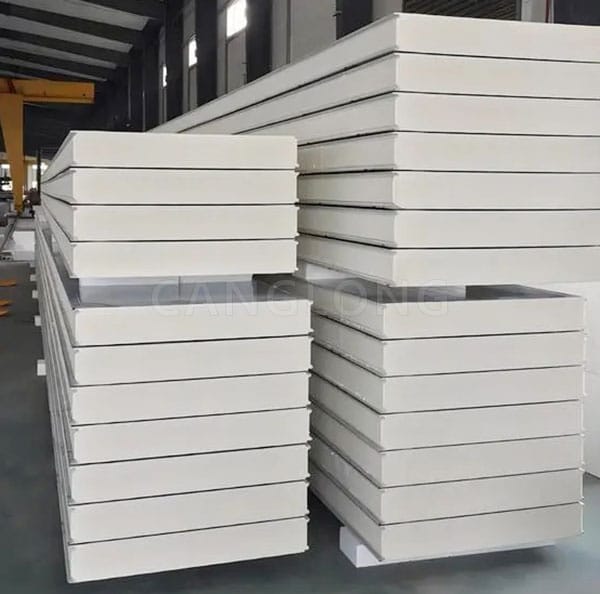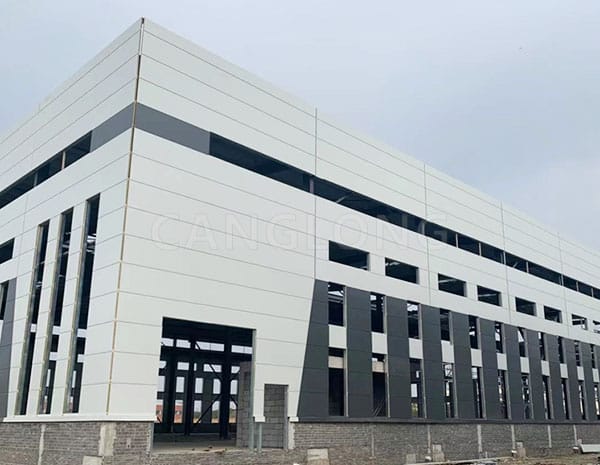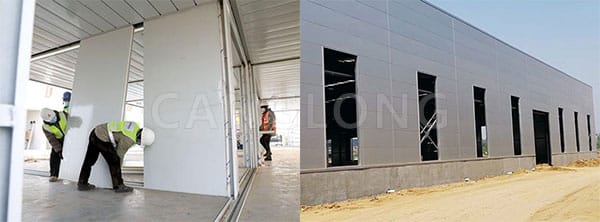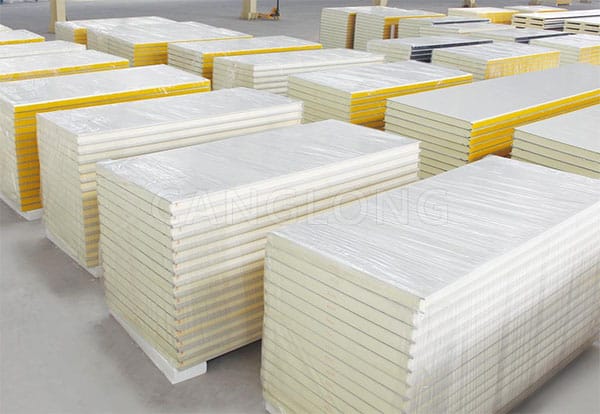PUF panels can be used for workshop wall insulation
In modern industrial production, workshop environmental control has a vital impact on production efficiency, product quality and energy consumption. Among them, wall insulation, as a key link in the workshop insulation system, is directly related to the thermal stability of the room. And PUF panels, with its excellent performance, has gradually become the preferred material for many workshop wall insulation.

PUF panel, that is, polyurethane foam board, is a high-performance thermal insulation material. Its birth stems from the continuous progress of material science and aims to meet the growing demand for energy saving and comfort. From the appearance, puf panel usually presents a flat board shape, and the surface can be treated differently according to the actual use scenario, such as film pasting, embossing, etc., to adapt to the complex environment such as humidity and collision that may exist in the workshop.
The most outstanding performance advantage of puf panel is its superb thermal insulation ability. Its closed cell rate is as high as more than 90%, which means that the flow of air inside the board is greatly restricted. The three ways of heat transfer – heat conduction, heat convection and heat radiation – all encounter strong obstacles in front of PUF panels. In the cold winter, the low temperature outside is difficult to penetrate the insulation barrier formed by the puf sandwich panel, and the heat in the workshop is firmly locked indoors, effectively reducing the operating time and energy consumption of the heating equipment, saving a lot of heating costs for the company. On the contrary, in the hot summer, the scorching sun and high-temperature air outside cannot easily transfer heat into the workshop, and the indoor environment maintains a relatively cool environment, reducing the cooling cost. According to actual test data, workshops using puf boards as wall insulation materials can reduce heating energy consumption by 30% – 50% in winter and cooling energy consumption by 20% – 40% in summer compared to workshops without insulation treatment, with significant energy-saving effects.

In addition to excellent thermal insulation performance, PUF sandwich boards also have good moisture-proof and waterproof properties. The workshop environment is complex and changeable, especially in some workshops involving high-humidity production links, such as food processing, chemical raw material storage, etc. The wall materials are very susceptible to moisture and mold, which not only affects the insulation effect, but also may breed bacteria and endanger product quality. The closed-cell structure of the PUF panel makes it naturally moisture-proof, and it is difficult for water molecules to penetrate into the board. Even if it is in a humid environment for a long time, it can still remain dry, ensuring the lasting stability of the thermal insulation performance, and providing a dry and comfortable space for the precision equipment, raw materials and staff in the workshop.
In terms of mechanical properties, the PUF panel also performs well. It has a certain strength and toughness, can withstand the slight collisions and vibrations that may occur in the workshop on a daily basis, and is not easy to deform or damage. During the installation process, its relatively light material is also convenient for workers to carry and operate, greatly improving the construction efficiency. Moreover, the specifications of the PUF board are diverse, and it can be flexibly cut and spliced according to the actual size of the workshop wall, reducing material waste and reducing construction costs.

From an environmental protection perspective, the puf panel also conforms to the trend of the times. As the world pays more and more attention to environmental protection, the environmental protection of building materials is becoming more and more critical. PUF boards under modern production technology minimize the use of harmful substances in the selection of raw materials, and the negative impact on the environment is controlled at a low level throughout the entire life cycle of production, use and waste disposal. Some high-quality PUF panels are also recyclable, which is in line with the concept of sustainable development.
Of course, when using PUF panels as workshop wall insulation materials, it is also necessary to follow the correct installation specifications. First, it is necessary to ensure that the wall base is flat, dry and clean to provide good basic conditions for the pasting of PUF board. Secondly, when splicing the boards, attention should be paid to sealing to prevent the occurrence of thermal bridge effects in the gaps, which will affect the overall insulation effect. Furthermore, for workshops with fire protection requirements, puf sandwich panels with flame retardants added must be selected, and corresponding fire protection structural measures must be taken to ensure the fire safety of the workshop.

In summary, PUF panels have shown incomparable advantages in the field of workshop wall insulation due to their excellent thermal insulation, moisture and water resistance, mechanical properties and environmental protection characteristics. It not only brings significant economic benefits to enterprises, reduces energy consumption and operating costs, but also creates a comfortable and stable production environment, helping industrial production move towards an efficient and green direction. In the future construction and renovation of workshops, PUF boards will undoubtedly play a more important role and continue to promote energy conservation in the industrial field.
